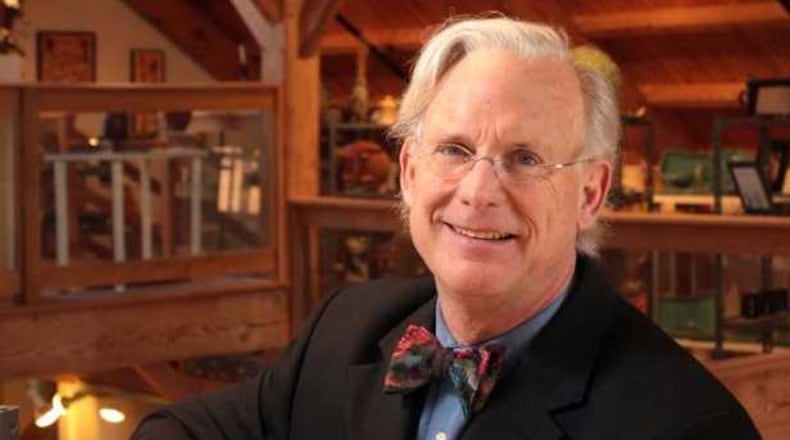It took three tries before Roswell Mayor Jere Wood succeeded in passing term limits for his office. Now, he's in court arguing that they don't apply to him.
Wood was first elected in 1997, and is in his fifth term as mayor. He testified Monday in Fulton County Superior Court that he thought the term limits the city council passed for the mayor's office in 2010 were forward looking, and wouldn't apply to the terms he had already served.
“I did not believe I was precluded from running (for a fifth term),” Wood said on the stand. “The intent was that from that point forward, I could serve only three terms.”
Wood, who first advocated for term limits when he ran for mayor in 1997, was in his fourth term when the law was passed. By his interpretation, he would be eligible to run for three more terms after that point.
Michael Litten, who plans to run for mayor of Roswell this fall, sees it differently. He sued Wood, who has not yet announced his intentions for the mayoral race, saying that he never should have run for a fifth term. Litten said Wood should be required to vacate the office.
The law limits the mayor of Roswell to three four-year, consecutive terms.
“It’s a 27-word sentence, it’s cut and dry, a pre-schooler could understand it,” Litten said of the law.
The case, in front of Judge Craig Schwall, may come down to one question: whether a law creating term limits can be retroactive, or whether it can only look forward. It comes down to the intent of those who passed the law vs. the language that was actually passed.
Schwall directed the attorneys to send him briefs supporting their arguments by June 15. A ruling could come after that point.
Schwall said Wood has to “be worried about the plain language” of the law, which doesn’t specify whether its intent was to look forward or back.
Roswell passed another law through the legislature this year that limits the terms of city council members to three terms. That law explicitly states that it is forward-looking, not retroactive, as it specifies that it is only effective for terms served in or after 2018.
Since the lawsuit was filed, the city has tried to get the state legislature to clarify that it meant the law to count for terms in the future. Legislators declined.
Wood said they had personal motivations to do so, though he did not elaborate as to why.
“I believe the legislators’ actions since then have been punishment,” Wood said. “Their refusal to clarify has been punishment.”
John Monroe, who is representing Litten, said there are plenty of instances when a law has applied to people retroactively. He said Wood shouldn’t have been prevented from completing his fourth term in office, which he was in the middle of when the term limit law was passed. But he should have been prohibited from running again.
“It’s pretty clear he wasn’t eligible to run in 2013,” Monroe said.
The case was filed last January, after Litten discovered the city's term limits law, Monroe said. Wood said Monday that he didn't want to comment before the judge's ruling, though last year, he said it was clear that the legislature had "made a mistake" in drafting the legislation.
“I need your support to amend the charter and fix this error so I can continue to serve as your Mayor,” he wrote to constituents on Facebook last year.
He also posted a YouTube video of the 2010 council meeting, saying “the intent was for the term limits to go into effect after the change and not be retroactive.”
Rep. Wendell Willard, R-Sandy Springs, said in court that he hadn’t read the legislation closely, but that he understood the intent was not to apply the limits retroactively. Monroe, the attorney, argued that it was the language that was passed that mattered — not the intent of those who drafted the law.
Angela Couch, one of Wood’s attorneys, told Schwall that legislators generally don’t pass bills with new consequences for things that have happened already.
On the stand, Wood said he had never told constituents how many times he intended to run for office. When he first proposed term limits, he said, he didn’t know how long it would take to accomplish what he wanted to in Roswell.
“At the time, I thought it was a good idea,” he said Monday.
Relevant portion of the 2010 term limits law:
No person who has been elected to three or more four-year terms of office as mayor shall be eligible for election to the office of mayor.
MYAJC.COM: REAL JOURNALISM. REAL LOCAL IMPACT.
The AJC's Arielle Kass keeps you updated on the latest happenings in Fulton County government and politics. You'll find more on myAJC.com, including these stories:
Never miss a minute of what's happening in Fulton politics. Subscribe to myAJC.com.
About the Author
Keep Reading
The Latest
Featured





